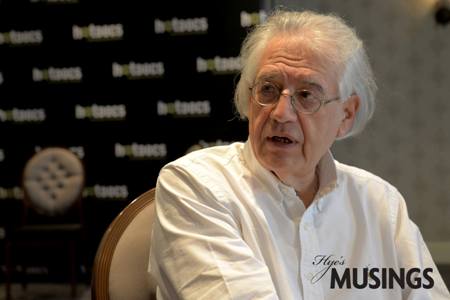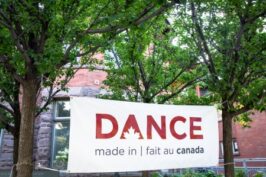This year Hot Docs Board of Directors chose Patricio Guzmán as the recipient of its 2015 Outstanding Achievement Award. As part of the honour, Hot Docs held a retrospective during the festival celebrating Patricio Guzmán’s distinguished career as a director and writer. The Hot Docs Outstanding Achievement Award is presented annually by the Hot Docs Board of Directors in recognition of a filmmaker’s enduring contribution to the documentary form.
Guzmán was born in 1941 in Santiago, Chile, and studied filmmaking at the Film Institute at the Catholic University of Chile, and at the Official School of Film in Madrid. Guzmán has worked on over 20 films, which are regularly selected and awarded prizes at international festivals, throughout a career spanning more than 40 years.
His documentaries deal with some very universal yet political themes, in a very eloquent and delicate manner. It is for this reason that I have become a fan of his work. I had the pleasure of meeting and conversing with Guzmán during his visit to Toronto to receive this award. During our brief but very interesting conversation, we discussed various points of interest to me with regards to his work, his thoughts on documentary filmmaking, and more.
We began our conversation by talking about the connection between memory and identity; two themes that surface when watching Guzmán’s many films. He humbly stated he has not made “many films… I make a film every five years”. He continued by sharing he believes memory and identity have a strong relationship. The same way making films dealing with memory relates to democracy. When a country does not deal well with democracy, it is imperfect.
He explained, “there is a relationship between democracy and memory, democracy and history, and memory and identity… If people were informed about the terrorist acts executed by its government, they are more complete. For example, in Spain, the remains of those who disappeared during the Revolution have yet to be found. Widows, who are now in their 90’s, die without knowing where their husbands were buried. This has created an anemic state in Spain’s people. And Chile is not far behind. It is very clean and has made some progresss, but it does not mean much. Mexico, Brazil and Argentina are the one who have a strong voice [when it comes to dealing with its own history]. Chile has not repaired itself, but it’s on its way. The coup will be felt for at least one hundred years.”

In revisiting the past in order to move forward: “Of course”, he agrees. In his opinion, we cannot work towards a “better future, without looking at the past”.
His films have received recognition from around the world. And now, here at Hot Docs. What does this mean? “Nothing except that they help in disseminating your work”.
I had heard Guzmán previously speak about solidarity among documentary filmmakers who deal with social issues, social justice, historical issues, and the like. “There are few of us. Perhaps 1000 across the world; we’re not that many. Very few. Many documentariess are made and one can learn from these. Many are made especially for TV; they all have the same format. You feel like you’ve seen the same story before… It’s a way of learning but [more can be done]”.
On subjectivity in documentary filmmaking, he identified “the form has evolved. After many years, film and TV executives have noticed they cannot fight against subjectivity in documentary. It makes the project stronger. The issue of subjectivity comes up every ten years. When I was younger, documentary films were objective and impartial. That attitude ended, but there is always someone who will criticize subjectivity as being manipulative, and that we need to be more objective… It’s an on-going discussion. But I believe that when a documentary has subjectivity, it is very effective”.
Our last point of discussion was how documentaries can be dangerous because they tell the truth. “In fact, documentaries discuss issues many do not want to address. They tell stories many do not want to hear. One has to talk about these various truths. This is valid because there are many people who have suffered. But one has to work past this, and keep working. Because young people want to know and learn about what has happened. To talk about what really happened and was kept hidden, his is what makes documentaries very important”. And this is why Guzmán’s work is also of importance, and very much needed in our world today.
**Para mis amigos de habla hispana, pueden escuchar nuestra charla aquí en Soundcloud.






